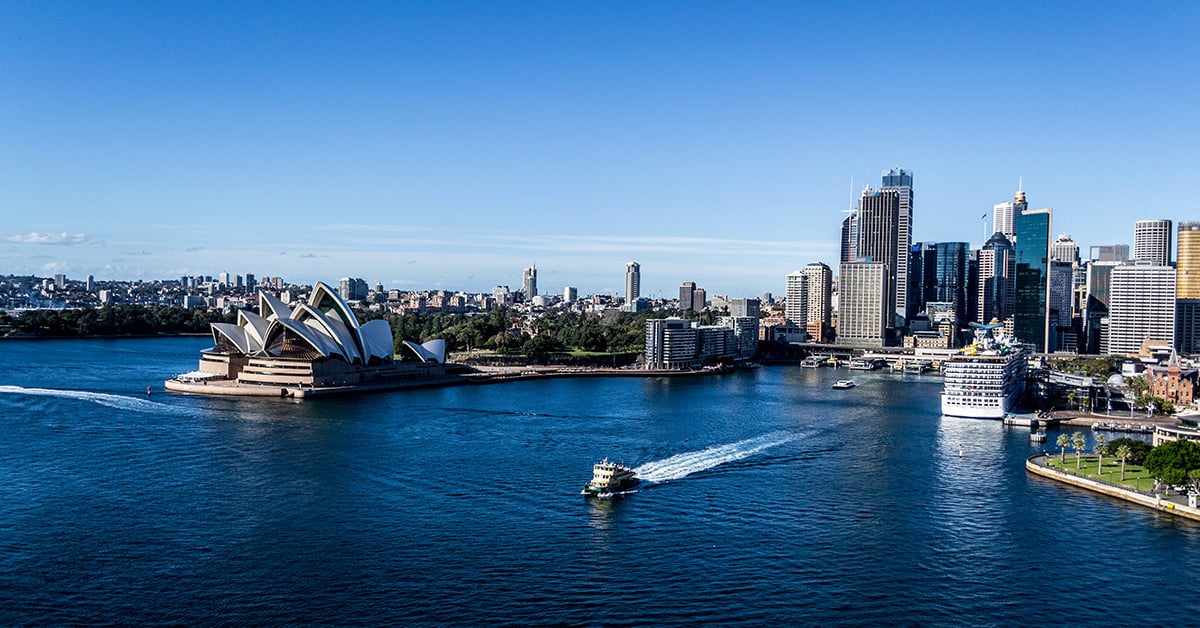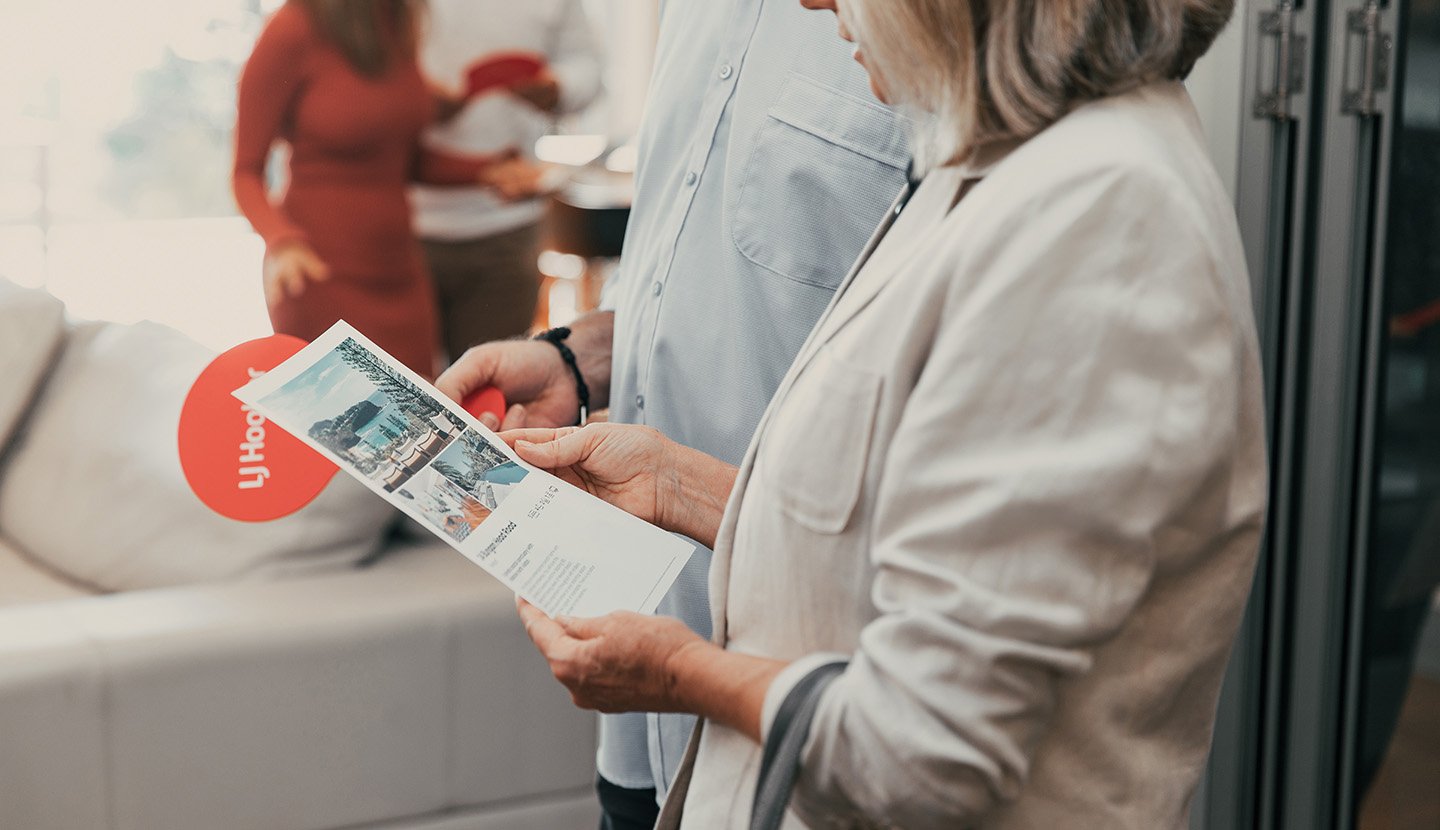Buying Real Estate in NSW

Everything you need to know about buying NSW real estate
New South Wales is the most populated state in Australia and has the highest average house and unit price across the nation with many suburbs breaking the million dollar mark. With competition high, it can make buying real estate in NSW a daunting task, but with the right planning it can be achieved without much stress at all.
Different Ways to buy a Property in NSW
Before you begin the process of buying NSW property, it is important to understand the different ways that you can actually go about it.
Private Treaty
A standard residential property transaction is known as a Private Treaty sale. This is when the vendor, or home owner sets the price they would like to sell their property for and their real estate agent negotiates individually with prospective buyers to achieve a sale as close to this price as possible.
Buying at Auction
An auction is a public sale conducted by a licensed auctioneer and are governed by strict rules. There is a reserve price, which is essentially the minimum the home will sell for - if bids surpass the reserve and you are the highest bidder, you have to sign the contract right there and then.
Buying by Tender
Buying NSW property by tender is a process wherein you submit a single offer, usually accompanied by a 5 or 10 per cent deposit, and it is accepted or rejected by the vendor.
Buying off the plan
When you buy property off the plan, you are paying for something that hasn't been built yet. The home can end up slightly different from what you were told. However, it does offer you a lower price point than many other properties.
Financing a property purchase in NSW: how much you can afford?
The next step is understanding how much you can afford. A deposit is usually 10 to 20 per cent of the purchase price.
Now is a good time to talk to LJ Hooker Home Loans, as they can help you create a budget and give you an understanding of how much you will be able to borrow.
Hidden costs of buying real estate in NSW
Purchasing property in NSW also has many hidden costs you need to be aware of. Here is a summary, but a full list can be found at the Office of State Revenue.
- Stamp duty is a tax levied by the NSW Government. It is based on the value of your property and can be significant. For NSW property that costs between $300,001 and $1 million, you will pay $8,990 plus $4.50 for every $100 you pay over $300,000. So on a $650,000 property, stamp duty would end up costing $24,470. On a $1.3 million home, it would be $56,990. Click here for the NSW stamp duty calculator.
- Legal fees will be between $1,500 and $3,000 depending on the complexity of your contracts.
- Mortgage duty (including multi state duty) and land tax may also be paid and cost between $300 and $400.
- Pests and Building Inspections will be between $300 and $400.
- Loan application fees can range from nothing to $1,000 - sometimes this is waived by the lender.
- Independent valuers fees - you will require an independent valuer to value the property you are planning on buying. This is generally $300 to $500.
- Lenders Mortgage Insurance - if borrowing more than 80 per cent of the property's purchase price, you'll need LMI. This is a one off premium to cover the lender should you default on the loan. This varies but allow for around $10,000.
- Registration of title - you are required to register the title with the NSW state government for $75.
- Building, Pest and Strata - you can expect to pay around $300 to $400 for a building or pest inspection and $200 for a strata report.
- Council Rates and Strata Fees - these commence from settlement. Allow for an extra $500 to $800.
Once you understand the costs, you should secure a home loan. LJ Hooker Home Loans can offer you a wide range of products to suit a number of incomes. We can help you work out your borrowing power, weigh up all of these costs and give you a clear idea of what you can borrow to buy NSW property.
Finding NSW property to buy
Research
It is important that you spend time researching the area you are looking at buying in. Here is a short list of resources that will help you:
- LJ Hooker Open Market report for a regional snapshot of the property market, and your Local LJ Hooker office for a local market report.
- Australian Property Monitors and CoreLogic RP Data are excellent online providers of property data and information.
- Websites like domain.com.au, realestate.com.au and agent sites like ljhooker.com.au will show you what is on the market.
From there, you can settle on what kind of property to buy - existing homes, off-the-plan units, apartments or houses, or perhaps something else altogether. The Department of Housing's A-Z of Buying is also a useful guide.
Where to look for properties
As for the actual property search in NSW, contacting your local LJ Hooker real estate agent is a great place to start. They know the local market intimately and would love to help you find your dream home.
As well as the sites like Domain mentioned earlier, local and state newspapers can be very useful for finding more information.
Importance of inspections
Make sure you spend time thoroughly inspecting the property. Here are some inspection guidelines to help you when you walk through the property. Click here for an apartment checklist and click here for a house inspection checklist. t is also recommended to have a pre-purchase building / pest inspection on all properties you are serious about buying as it can save you thousands in the long run.
The NSW buying process
Negotiating by private treaty
If you have found a property you love and want to make an offer. Make sure you have carefully considered how much you are willing to pay, how much you can afford, whether you go in with your highest price or prefer to go in low.
All offers and counter offers must be made in writing and signed by you. The agent is legally obliged to pass on all offers to the vendor as soon as possible. The seller then decides whether or not to accept or reject the offer. In many cases, the sale price is negotiated until both parties agree to a final price. If your offer is accepted you have a five day cooling off period during which you can withdraw from the sale.
Auction
Auctions in NSW are governed by strict guidelines. To participate you must register with the vendor's agent and you will be given a bidders number. The auctioneer oversees the process and all bids from potential buyers are recorded. Before the auction commences the seller will normally nominate a reserve price and if the bidding continues beyond the reserve the property is sold at the fall of the hammer.
The seller is also permitted to make one bid called a vendor bid which the auctioneer will announce. If you are the highest bidder, you have to sign the contract of sale right there and then and pay your deposit (normally about 10 per cent). Also be aware, there is no cooling off period.
Contract exchange and settling the sale
After buying the property either via private treaty or auction, signed sales contracts are exchanged between the vendor and the buyer. Private treaty sales often have a 5 day cooling off period for the buyer, however there is no cooling off period for properties bought at auction or for the sellers of the property. It is recommended you consult a solicitor or conveyancer during this process.
Settlement is the conclusion of the sale transaction, and usually takes place about 6 weeks after the contracts are exchanged.
For any further questions or to find out how you can get into the NSW property market, contact your local LJ Hooker representative.
DISCLAIMER - The information provided is for guidance and informational purposes only and does not replace independent business, legal and financial advice which we strongly recommend. Whilst the information is considered true and correct at the date of publication, changes in circumstances after the time of publication may impact the accuracy of the information provided. LJ Hooker will not accept responsibility or liability for any reliance on the blog information, including but not limited to, the accuracy, currency or completeness of any information or links.



